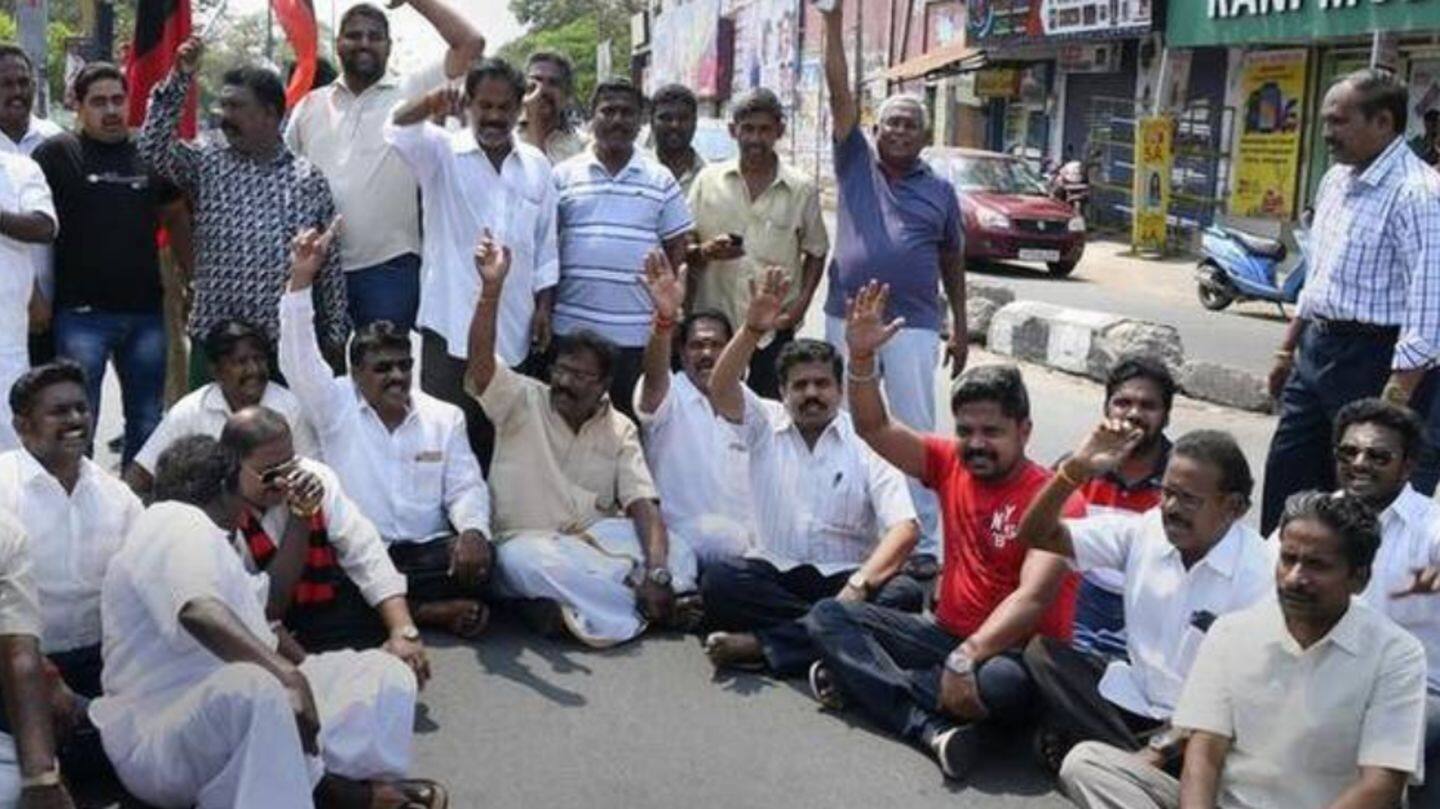
Cauvery Management Board: Over 200 DMK workers detained for protesting
What's the story
Tamil Nadu Police today detained about 200 DMK workers in Chennai. They were protesting the Centre's hesitation in constituting the Cauvery Management Board. Two DMK workers were also taken into custody for attempting to immolate themselves. Notably, these protests were carried out on the day SC agreed to hear the contempt petition filed by the TN government against the Centre on March 31.
Issue
What is the Cauvery issue?
This 125 year old dispute refers to clashes between Tamil Nadu, Karnataka, Kerala and Puducherry over sharing the waters of the 765-km long Cauvery River. Karnataka claims that it is the state's sole prerogative to share waters, especially since it needs the river for drinking water and agricultural needs. TN contends that the SC, in its recent judgment, reduced their quota by 14.75tmcft.
Controversy
Why has the issue blown-up into a controversy?
The SC, in its February 16 judgment, asked the Centre to set up the Board within six weeks to ensure that its ruling on Cauvery water distribution is implemented. When the deadline ended on Thursday, the Centre sought an extension of three months, citing the upcoming Karnataka polls. Subsequently, TN asked SC to take action against Centre for "willfully disobeying" the order.
Unity
All TN parties have united for this cause
Notably, DMK members courted protests the day after their boss, working President MK Stalin was detained by the police. Yesterday, at an all-party meeting, attended by TN Congress, CPI and CPI(M), Stalin called for a state-wide shutdown on April 5. He also said that party cadres would show black flags to PM Modi during his visit to Chennai on April 11.
Do you know?
Meanwhile, Parliament couldn't function as protests erupted
TN MPs continued to create chaos in Parliament over this issue. Rajya Sabha was adjourned for the day after AIADMK legislators protested in the well. The Lok Sabha was adjourned till noon. Many MPs continued their demonstration outside the Parliament with placards.